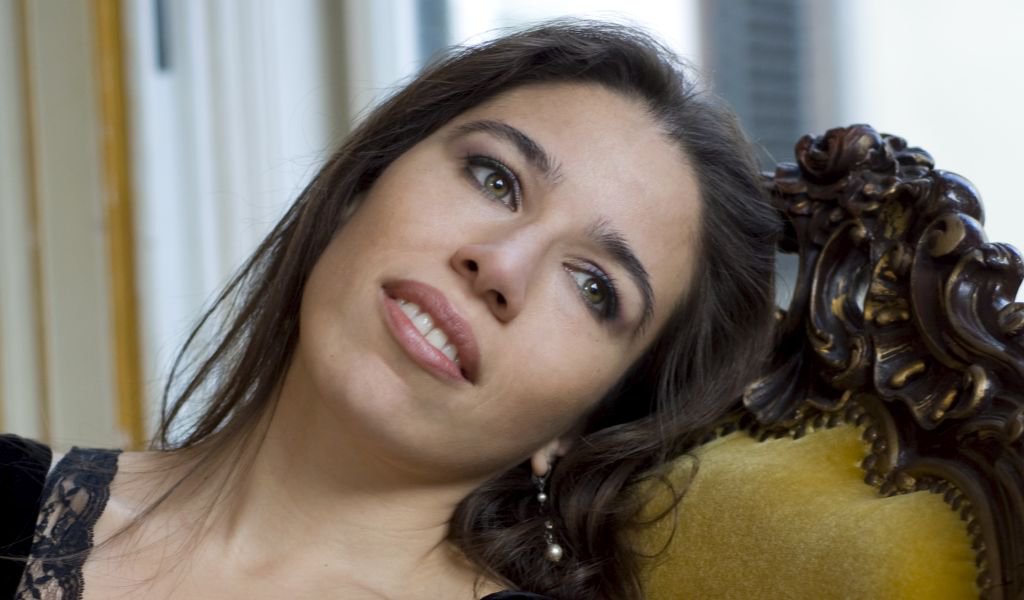
Program
Featuring
Other information
Season tickets
- DORÁTI B
The event is about 2.5 hours long.
About the event
Our orchestral concert planned for January 30 and 31, and February 1 and 2 will be held without live audience on January 30 at 7:45 p.m. and livestreamed on the ESzínház streaming platform. Stream tickets are available here.
Ticket and season pass holders will receive free access to the online concert stream through a link that will be sent to them by email before the concert.
Guest performers will include Chilean-Swedish mezzo soprano Luciana Mancini, who according to Bachtrack turned her character in last year’s highly successful L’Orfeo into “one of the highlights of the evening”, along with Swiss conductor Michel Tabachnik, a protégé of Herbert von Karajan, who has conducted more than 130 premieres and returns to us after two years. The concert will feature a piece by the deeply religious Messiaen about Christ’s sacrifice, Ravel’s Shéhérazade reminiscent of oriental tales and Debussy’s world famous À l’après-midi d’un faune and and La mer, taking impressionistic depiction of water to a new level. One musical scene, many links, a multitude of colors―that is French music.
Though 22-year-old Messiaen was greatly influenced by his compatriots Debussy, Ravel and Dukas, he had already developed an individual style, based in part on his intimate relationship with Catholic theology. The key message of Les Offrandes oubliées (The forgotten offerings) is “You love us, sweet Jesus: that we have forgotten.” The first, lamenting section presents the cross, the second man’s descent into sin and the forgetting of the offering, while the last shows what happens when salvation is remembered again, through the Eucharist.
The next work is in a completely different vein: Ravel, drawing on his life-long fascination with the Arabian Nights, set three poems by Tristan Klingsor in his song cycle Shéhérazade. The uncannily speech-like vocal part reflects Debussy’s influence. Asia, composed in the dark key of E-flat minor, is an increasingly intense longing for exotic lands. The Magic Flute is a bittersweet tale of a young slave girl who hears her lover playing his flute outside, while the Indifferent One tells the story of an unsuccessful conquest.
The flute plays an important role in Debussy’s Prelude, which the composer described as a “very free illustration of Mallarmé’s beautiful poem.” Given that the group of young artists calling themselves “Les Apaches” (the Hooligans) met at Mallarmé’s apartment (where Ravel encountered Klingsor), it is small wonder that Debussy became fond of the poet’s works. Rather than presenting a specific narrative, the languid faun’s daydreaming about nymphs consists of a series of impressions.
The concert’s concluding piece is similarly abstract: La mer (The Sea) is a reflection of the composer’s personal experiences of the subject in “three symphonic sketches.” “From dawn to noon on the sea,” “Play of the Waves” and “Dialogue of the wind and the sea” not only conjure up images of the sea but also convey associations and emotions. As usual with Debussy, the melody is not always clearly separate from the accompaniment, blending into a homogenous texture instead.
Did you know? All four compositions premiered in Paris, Messiaen’s piece on February 19, 1931 (conductor: Walter Staram), Ravel’s song cycle on May 14, 1904 (soloist: Jeanne Hatto, conductor: Alfred Cortot) and Debussy’s Afternoon of a Faun and La mer on December 22, 1894 (conductor: Gustave Doret) and October 15, 1905 (conductor: Camille Chevillard), respectively; the Festival Orchestra last played the song cycle in Bratislava on September 27, 2000 (soloist: Wendy Nielsen, conductor: Iván Fischer), the Afternoon of a Faun in Beijing on October 6, 2016 (conductor: Iván Fischer, La mer on November 30, 2014 in Budapest (conductor: Robin Ticciati), and will be performing Messiaen’s piece now for the first time.
Contemporary events The Waves, a novel by English writer Virginia Woolf was published in 1931 / Szeged Open-Air Festival was first held in 1931 / in 1904, the Anglo-French agreement was signed creating the Entente / French painter Henry Matisse painted Luxury, Peace and Pleasure in 1904 / The Red Lily, a novel by French writer Anatole France about the world of salons in Paris was first published in 1894 / on October 15, 1894 officer Alfred Dreyfus was arrested in France accused of treason, marking the beginning of the Dreyfus case / in 1905, Die Brücke, an art group, was founded in Dresden by German expressionist artists / in St Petersburg, a revolution broke out in 1905, which could only be suppressed by a massacre and then political concessions / Austrian composer Arnold Schoenberg composed his String Quartet No. 1 in 1905
